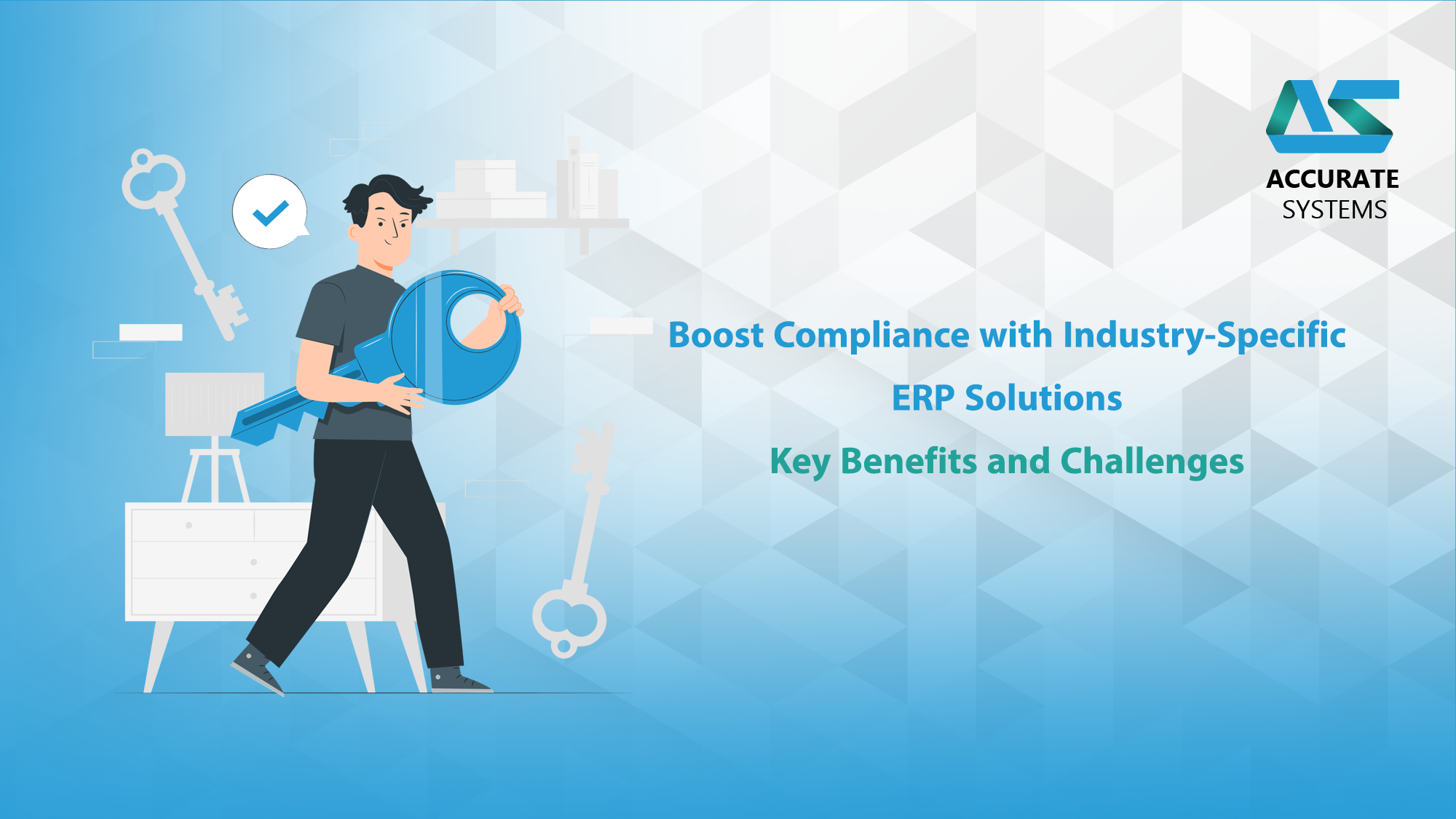Introduction:
In today’s regulatory landscape, ensuring compliance is a top priority for businesses across all industries. Non-compliance can result in legal consequences, hefty fines, and damage to reputation. To stay compliant, organizations increasingly rely on industry-specific Enterprise Resource Planning (ERP) systems, which are tailored to meet sector-specific regulatory demands. In this guide, we explore how industry-specific ERP systems simplify compliance management and the associated benefits and challenges.
Understanding Compliance Adherence
Compliance adherence is the practice of ensuring business activities align with industry standards and government regulations. This encompasses various areas, such as financial reporting, data protection, environmental standards, and labor laws. Adhering to these regulations is essential for any organization aiming to operate legally and sustainably.
Why Compliance is Essential
- Legal Safeguards: Compliance protects businesses from legal issues and fines.
- Reputation Management: Compliance builds trust with clients, investors, and the public.
- Enhanced Efficiency: A structured compliance approach can improve operational workflows.
- Risk Mitigation: Compliance frameworks help detect and manage regulatory risks.
How ERP Systems Simplify Compliance
ERP systems centralize business functions, offering an all-encompassing view of operations that facilitates compliance tracking. However, generic ERP systems may not meet industry-specific regulatory needs. Industry-specific ERP solutions provide tailored compliance features that address unique sector regulations, enhancing compliance adherence.
Key Compliance Features in Industry-Specific ERP Systems
- Custom Compliance Modules: These ERP solutions include modules for specific regulations. For example, healthcare ERP systems include HIPAA compliance features, while ERPs for finance focus on SOX compliance.
- Automated Reporting: Industry-specific ERPs streamline report generation for regulatory submissions, minimizing human error and ensuring timely compliance.
- Real-Time Monitoring: Real-time compliance monitoring enables businesses to address potential issues before they escalate.
- Document Management: ERP systems make it easy to manage and retrieve compliance-related documents, which is crucial for audits.
- Audit Trails: Comprehensive audit trails track all changes, supporting transparent compliance documentation and assisting in audits.
Key Benefits of Industry-Specific ERP Systems for Compliance
Implementing an ERP system specifically designed for your industry provides a significant compliance advantage. Here’s how:
- Accuracy and Consistency: Tailored ERPs minimize data errors, ensuring regulatory requirements are met precisely.
- Efficiency in Processes: By automating compliance tasks, ERP systems reduce manual workload, allowing employees to focus on strategic priorities.
- Improved Visibility: With dashboards and reports, ERPs offer insights into compliance metrics, enabling proactive decision-making.
- Integration Across Functions: Industry-specific ERPs embed compliance within finance, supply chain, and HR functions, creating a culture of compliance.
- Scalability: As regulations change, ERPs can adapt, helping businesses stay compliant without major overhauls.
- Cost Savings: Automating compliance reduces the risk of penalties and cuts down on manual processes, resulting in significant savings over time.
Implementation Challenges
While beneficial, implementing an industry-specific ERP system has its hurdles. Here are some challenges to consider:
- High Initial Investment: ERP systems require upfront investment, though the ROI typically outweighs initial costs.
- Managing Change: Implementing new systems involves adjusting workflows, which may face employee resistance. Change management is essential.
- Data Migration: Transferring data to a new ERP can be time-consuming. Proper planning is key to avoiding data loss.
- Customization Needs: While industry-specific ERPs are tailored, some customizations may be necessary, adding to the complexity.
- Maintenance and Updates: ERPs require regular updates to stay compliant with evolving regulations, so allocate resources for ongoing support.
- User Adoption: Training is essential to ensure employees can fully leverage the ERP system for compliance management.
Conclusion
Industry-specific ERP systems offer a powerful tool for enhancing compliance adherence by aligning with unique sector requirements. While implementation may present challenges, the long-term benefits—accuracy, efficiency, and cost savings—make it a worthwhile investment. With proper planning, change management, and training, organizations can leverage ERP systems to maintain regulatory compliance and achieve operational excellence.
Optimize Compliance with Industry-Specific ERP Systems: Embrace the future of regulatory management by integrating a tailored ERP solution. The journey to compliance excellence starts with choosing the right system for your industry’s needs.


